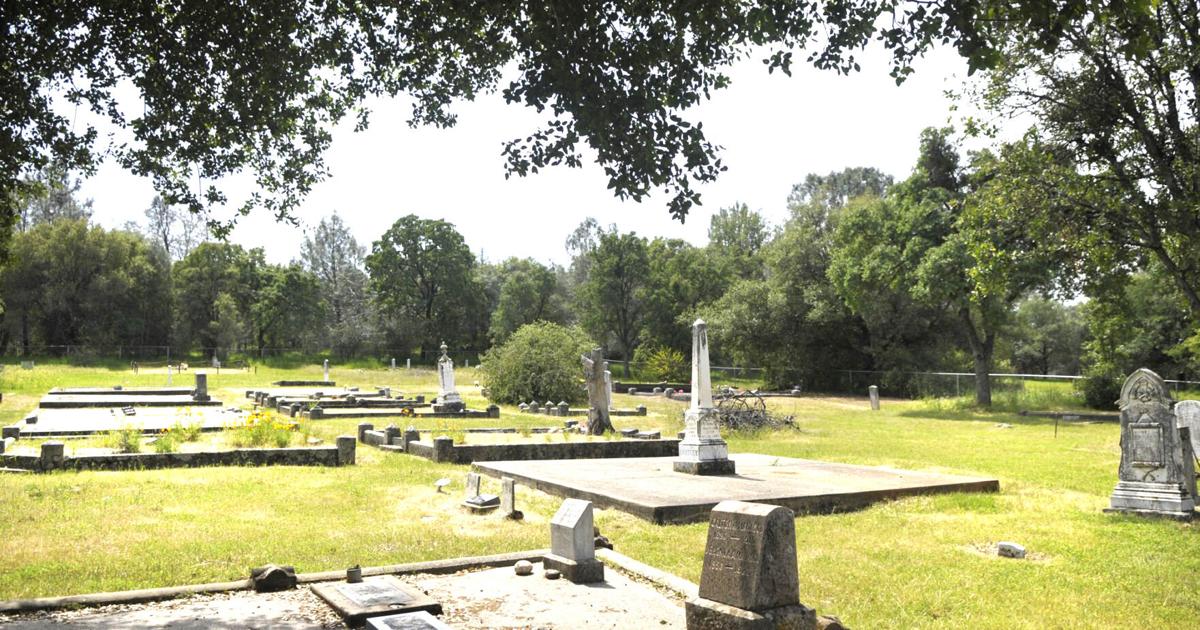The Yuba County Grand Jury released its 2024-2025 report, commenting on a range of local systems, including cemetery management, mental health programs, Marysville marijuana revenue, and the county’s largest school district.
This year’s report focuses on four key investigations: the condition of public cemeteries, gaps in law enforcement and behavioral health coordination, marijuana revenue tracking in Marysville, and oversight failures within the Marysville Joint Unified School District (MJUSD).
Agencies named in the report must formally respond within 60 to 90 days after the report was delivered to Yuba County, which was in late June.
Jurors found that maintenance procedures and communication between agencies for Yuba County’s public cemeteries are inadequate. The county’s 10 community cemetery districts (CCDs) also have deficient recordkeeping methods, with records often stored in board members’ homes, garages or barns.
Such actions have led to what the jury called a “degradation of a few of the County public cemeteries.”
“Understanding that resources are limited and few people are aware of the plight of a CCD or the often thankless work that trustees put into these public cemeteries, there must be a better way that we can honor and dignify our dead,” jurors wrote.
Jurors noted that the public lacks knowledge on the cemetery districts and that they’re paying into the system through taxes.
CCDs are independent special districts organized under the Local Agency Formation Commission (LAFCo). They are not governed by the county, so their boards have decision-making authority. However, they do share some responsibilities with the county. For instance, the Yuba County Board of Supervisors appoints CCD board members.
Funding for CCDs comes primarily from plot sales, endowments and a small share of property taxes, but no direct state funding, the jury wrote.
Recognizing the need for better communication between jurisdictions — including the state, county, LAFCo board and the CCDs — the grand jury recommended the county board implement a policy for regular communication. They also urged the board to adopt a resolution outlining the county’s roles and responsibilities with the CCDs.
To improve recordkeeping, the county board should establish a joint memorandum of understanding (MOU) with each CCD to create a records management system, the report stated.
To improve transparency, jurors also suggested CCDs maintain a basic website and social media accounts to share public information, and that local agencies host a town hall for community input. As well, the report recommended a municipal service review by LAFCo, stronger recruitment efforts by the Yuba County board, and the creation of a new county service, among other reforms.
The county board of supervisors, LAFCo, the boards of all CCDs, the city of Marysville, the executive director of Yuba County, the clerk of the board and the county administrator are required to respond to the report.
Mental health crisis response
Yuba County law enforcement said that as much as 50% of law enforcement encounters include some aspect of behavioral health, jurors wrote. While officers receive some specialized mental health training, they aren’t behavioral health professionals, and certain encounters could often be “better addressed by someone who has received extensive behavioral health training.”
To improve responses to mental health-related situations, Sutter-Yuba Behavioral Health (SYBH) and Yuba County law enforcement agencies agreed on a MOU in January, and SYBH established its Mobile Crisis Response program.
According to the California Department of Health Care Services, mobile crisis services are community-based interventions providing “de-escalation and relief to individuals experiencing a behavioral health crisis wherever they are, including at home, work, school, or in the community,” the jury wrote.
The grand jury found insufficient marketing and public communication on the Mobile Crisis Response program. SYBH told jurors it relies on social media and community partners to share information with the public, but jurors found this approach ineffective, citing a lack of details on the agency’s website and social media.
Jurors also found confusion and a lack of formal training among SYBH first responders, noting that the agency hadn’t conducted training for law enforcement or emergency personnel on the program’s benefits and availability.
Finally, the jury found that SYBH hadn’t identified an ongoing funding source to maintain the Mobile Crisis Response program. The program’s operating costs total around $3.2 million from Medi-Cal, state and federal grants, and potential insurance reimbursements. However, many of these sources aren’t guaranteed, the jury noted.
Jurors recommended that SYBH develop a formal and comprehensive training plan for current and future first responders to educate them on the program. They also urged SYBH to develop a more enhanced public communication strategy and find ongoing funding sources.
The Yuba County Board of Supervisors, Yuba County Health and Human Services, and Sutter-Yuba Behavioral Health are required to respond.
Lack of marijuana revenue audits in Marysville
Marysville’s cannabis program “generates significant revenue,” but its lack of revenue audits is “a critical deficiency,” according to the jury report.
In 2016, Marysville voters approved Measure F, establishing a cannabis business tax to fund city services. In 2019, the city’s two marijuana dispensaries, Perfect Union and Wild Seed Wellness, opened their doors.
The Measure F tax started at 1% and gradually increased to 5% of gross receipts, generating about $80,000 per month. The city budgets about $850,000 annually from cannabis-related sources, the grand jury reported.
“These funds bolster public services, underscoring the program’s economic impact,” they wrote.
But the absence of revenue audits, according to the grand jury, “represents a significant failure of fiduciary responsibility that could lead to mismanagement or underreported earnings.
The report said that (1) the city council should review all cannabis money going into the general fund to ensure expenses do not exceed revenues, and (2) a financial audit should be conducted and a calendar of future financial audits should be scheduled to ensure correct amounts are reported and accurate fees are collected.
The jury also recommended other items, including maintaining a high standard of scrutiny for all permit applications and retaining security protocols so dispensaries “do not attract illicit drugs connected with…criminal activity.”
Marysville City Council is required to respond within 60 days, and the Yuba County Office of Education and the Marysville police chief are invited to respond.
Oversight and finances in MJUSD
MJUSD has suffered scrutiny from its own teachers union and staff, causing negative sentiments to grow over time. The Appeal has reported recently on these issues, including a lawsuit alleging emotional abuse of first graders and faculty frustration over staff reductions.
Now, the district is under scrutiny from the grand jury, particularly regarding anti-bullying policies, finances, safety and general management.
According to the report, local education agencies are required by the state to make anti-bullying resources and information readily available in a prominent location on their website. The grand jury reported that MJUSD failed to do so.
“Despite a Nondiscrimination Statement on its main page that includes bullying, the MJUSD website fails to provide easily accessible information. Specifically, it lacks a clear definition of ‘bullying,’ readily available resources for parents and students, and a well-defined complaint procedure,” the jury wrote. “Navigating the MJUSD website to find information on bullying and how to report it would likely prove difficult for a parent unfamiliar with educational jargon.”
Jurors said that the district provides limited guidance to parents and students on how to report bullying, but the policies are outdated and should be updated to meet the current definition of bullying according to the California Education Code.
MJUSD’s policies in relation to finances, safety and general management were deemed “grossly outdated” in the jury’s report. They urged the district to regularly update the policies to align with the California Education Code.
“The Grand Jury has concluded that these outdated policies are indicative of the lack of oversight by the Superintendent and the Board of Trustees,” the report stated.
The jury understands MJUSD is working to remedy the lack of oversight and wrote that they are hopeful that the district is “on the mend.”
“There is some hard work ahead to right this ship,” jurors wrote.
MJUSD faces a $3.7 million budget deficit, with nearly 80% of the district’s $228 million budget funding personnel, according to the report. Jurors noted a significant staffing increase at the district office, previously covered by COVID funds, and recommended reducing personnel to improve the budget.
The grand jury recommended that MJUSD’s policies be updated every quarter until they are up to date, then establish a recurring review cycle. Jurors also stated the district should educate parents and students on the definition of bullying and provide easily accessible resources, and the district office staff should be reduced to improve the budget.
The MJUSD Board of Trustees is required to respond within 60 days.
Post navigation
About The Author
Artist, graphic designer, cannabis enthusiast. Creator of tokethemost.com





